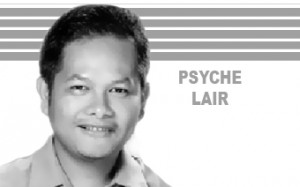 Where you are in your life now is literally the result of your habits. Whether you are productive or not, happy or miserable, successful or unsuccessful, are the product of your habits.
Where you are in your life now is literally the result of your habits. Whether you are productive or not, happy or miserable, successful or unsuccessful, are the product of your habits.
Many will say it’s our dreams or our goals that will lead us to what we want to be. Yes, but that is only half of the story. It is what we do every day, the daily routines, which will significantly determine the realization of our goals and dreams.
Look at these examples. Immediately after waking up we pray. After eating, we brush our teeth. Or when our cellphone beeps, we read messages. When we get to our laptop, we immediately open Facebook. Or when we see something, we automatically criticize rather than appreciate. These are the tiny, yet powerful behaviors that can make or break us.
And so what are habits? They are behavioral patterns we repeat most often and they are etched into our neutral pathways. That is why old habits are hard to break and new habits hard to form. But fortunately, new habits can be formed and maintained as well through repetition.
But before we talk about creating new habits, let us first understand how habits are formed.
Studies show that habit formation follows a pattern. First, you have a cue, and then the routine, and the reward.With constant repetition over days or months, these three become intricately interwoven and create strong neural connections in our brains.
Have you ever wondered how you developed, say, your habit of brushing your teeth? First you have a cue or a trigger. Usually, after eating, you feel uncomfortable with a mouth that smells of food. When toothbrush and toothpaste were first introduced to us, we immediately felt that cool, soothing, clean feeling in our mouth.
Hence, when you see a toothbrush or toothpaste, you begin to associate this with the feeling of having that cool and clean feeling in your mouth (reward), and so you jump into action (routine) to experience that reward.Toothbrush (cue), actual tooth brushing (routine), cool clean mouth (reward).
For many of us, tooth brushing is part of our daily routines and we naturally do this even without deliberately thinking about it. This is because our system is wired to follow such a pattern that has become part of our existence, biologically, emotionally, and even socially.
The reward plays a great part in habit formation. For instance, your habit of eating junk food if you are stressed can be linked to the reward or feedback. If you are stressed and then eat, you get the pleasure or comfort (positive feedback). But if you don’t eat, you remain stressed (negative feedback).
So, positive feedback for indulging an urge and negative feedback for not indulging it makes you want to do it repeatedly whenever the trigger happens, which leads to the formation of a habit.
How do we effectively change or create new habits? That will be our topic next issue.
P.S. Enrolment in Bohol Child Head Start is still going on. Slots are getting filled up. Contact 416-1248/09295571136. You may also visit www.boholchild.com.
(By Kit Nemenzo Balane)
